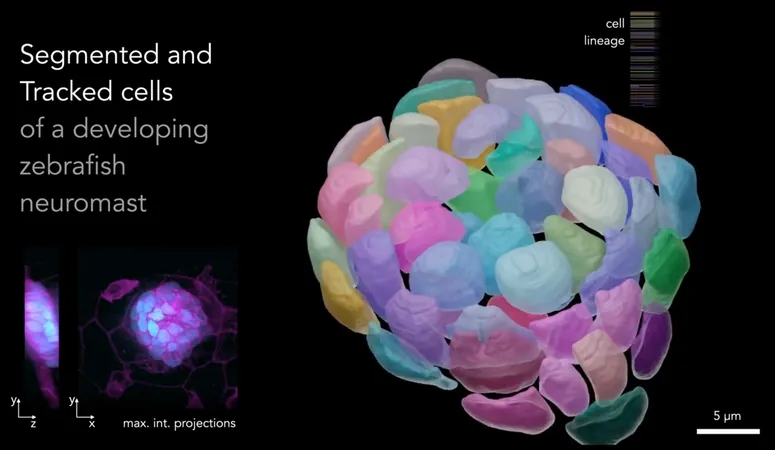
Shocking New Study Reveals COVID-19 Could Age Women’s Blood Vessels by 5 Years!
2025-08-18
Author: Li
COVID-19: The Hidden Toll on Women's Health
Research has uncovered a startling fact: COVID-19 might cause women’s blood vessels to age by nearly five years! A recent study published in the European Heart Journal highlights that even mild cases can lead to accelerated cardiac aging, particularly in women.
The Study's Eye-Opening Findings
Conducted with 2,390 participants across 16 countries between 2020 and 2022, the study categorized individuals based on their COVID-19 experiences—from never infected to those requiring intensive care. All participants had contracted the virus within 90 days of enrollment, averaging around 50 years old, with nearly half being women.
The Unforgettable Impact of COVID-19
The research used a method known as carotid-femoral pulse wave velocity (PWV) to measure blood vessel stiffness. Six and twelve months post-infection, results revealed that all groups of COVID patients experienced stiffer blood vessels. However, the results were strikingly more pronounced in women compared to men.
Women at Greater Risk—A Double Whammy
For women who tested positive for COVID-19, the increase in PWV was significantly greater, showing a doubling for ICU patients compared to their non-infected counterparts. Specifically, women with mild COVID saw an average increase of 0.55 meters per second in PWV, while those hospitalized had an increase of 0.60, and ICU patients faced a staggering rise of 1.09.
Vaccination: A Shield for Women?
Interestingly, vaccinated women displayed considerably lower PWV levels than those unvaccinated, indicating a potential protective effect. In contrast, vaccination status did not appear to influence men’s PWV readings.
Why Are Women More Affected?
Lead study author Dr. Rosa Maria Bruno suggests the disparity may stem from women’s immune response, which is typically faster and stronger. While this robust immune response can offer advantages, it might also lead to increased vascular damage post-infection—a double-edged sword.
The Long-Term Implications of COVID-19
As Dr. Syed Bukhari from Johns Hopkins University points out, this study sends a crucial message to healthcare professionals and policy-makers: the vascular effects of COVID-19 are significant and likely vary between sexes. It underlines the necessity for further research and potential preventive strategies to combat the long-term impact of COVID-19 on women’s vascular health.
What Does the Future Hold?
The findings raise a pressing question: how can we modify risk factors to mitigate the adverse effects of COVID-19 on vascular aging? As we navigate future waves of the pandemic, the lessons from this study could pave the way for proactive health strategies tailored to both men and women.





 Brasil (PT)
Brasil (PT)
 Canada (EN)
Canada (EN)
 Chile (ES)
Chile (ES)
 Česko (CS)
Česko (CS)
 대한민국 (KO)
대한민국 (KO)
 España (ES)
España (ES)
 France (FR)
France (FR)
 Hong Kong (EN)
Hong Kong (EN)
 Italia (IT)
Italia (IT)
 日本 (JA)
日本 (JA)
 Magyarország (HU)
Magyarország (HU)
 Norge (NO)
Norge (NO)
 Polska (PL)
Polska (PL)
 Schweiz (DE)
Schweiz (DE)
 Singapore (EN)
Singapore (EN)
 Sverige (SV)
Sverige (SV)
 Suomi (FI)
Suomi (FI)
 Türkiye (TR)
Türkiye (TR)
 الإمارات العربية المتحدة (AR)
الإمارات العربية المتحدة (AR)